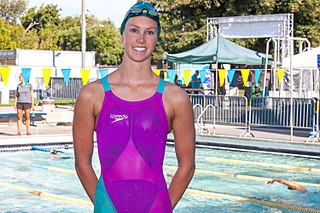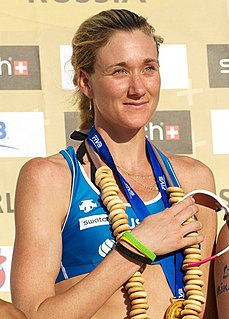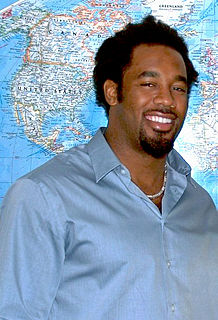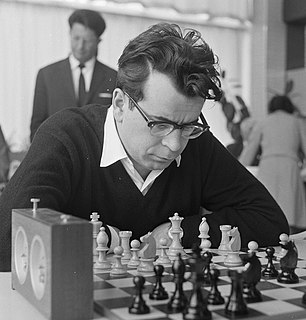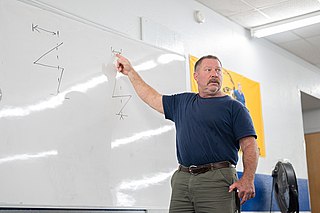A Quote by Tanc Sade
I am used to training 10 to 12 sessions a week, so I have the physical and mental endurance that comes with being an athlete.
Related Quotes
I love my country, and the mental and physical demands of the Navy SEALs was what I had been training for my whole life growing up in Montana. There's a reason Montana produces more SEALs than any other state. As a collegiate athlete, I enjoyed the mental and physical challenges Division I football presented. When a recruiter first told me about the Navy SEALs, I knew it was the right fit.
when I was younger I used to wrestle, and I feel that it contributed to my athletic ability because as a wrestler you have to be an all-encompassed athlete. You need stamina, strength, endurance and mental capacity. You also have to learn how to adapt in any situation. In the book, that's how all the sports helped me in my strategies for football and life.

